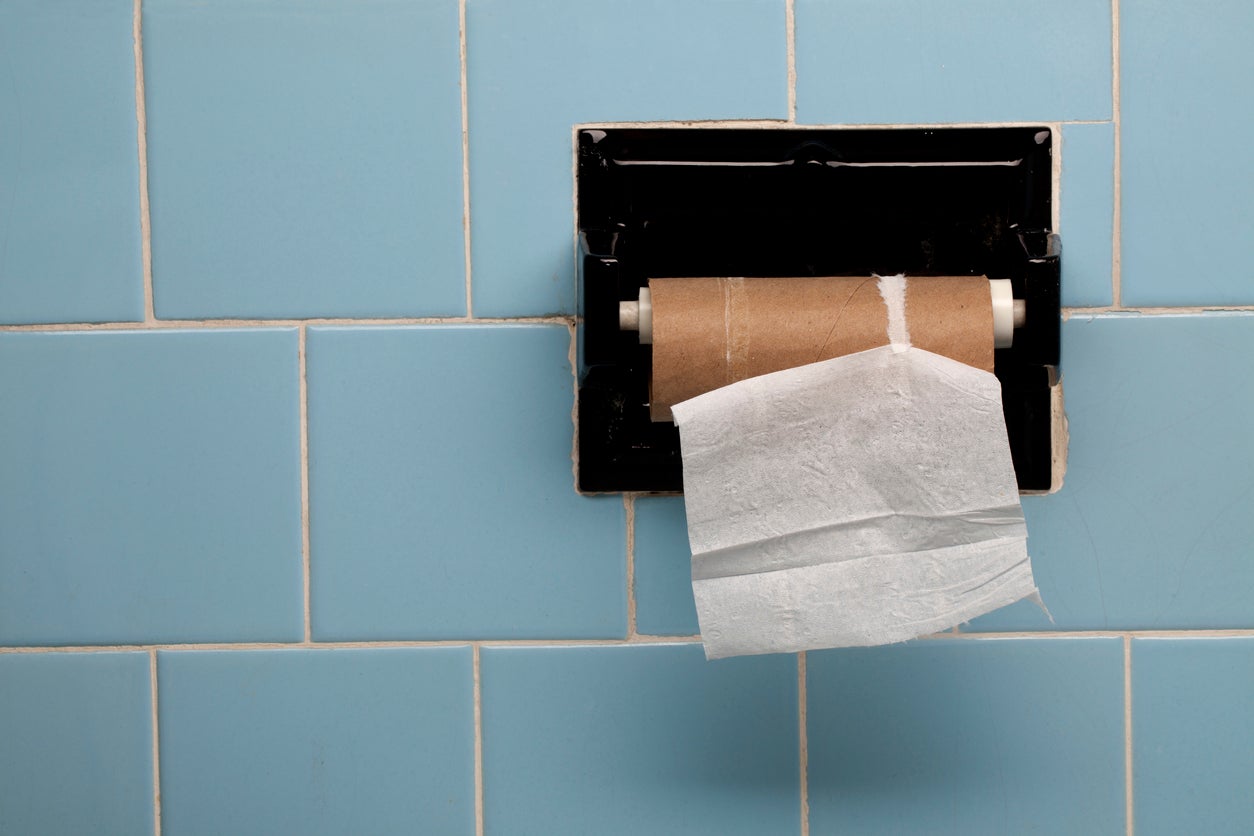We must stop flushing our trees down the toilet
The Climate Column: The UK fells an estimated 7 million trees every year to make toilet tissue. There’s an easy solution to this climate-damaging habit – get a nice pre-loved jug and place it by your loo for ablutions


Our destructive habit of wiping instead of washing our derrieres is having a devastating impact on what remains of our precious biodiversity-rich old-growth boreal forests and tropical rainforests. It’s estimated that only 30 per cent of the world’s population uses bathroom tissue to clean their bottoms. The rest of the world uses water or soft leaves.
Indian locals could not fathom why their colonial invaders refused to wash after using the bathroom. We do not use paper to wash our hands, so why use it for our bottoms when it is less effective?
Placed beside many Indian toilets is a small jug of water for ablutions, while in the Middle East and East Asia a bidet shower is preferred. By comparison, the impact of our western one-use tissue habit is staggering. One tree is felled to produce around 800 to 1500 toilet rolls, depending on the size of the tree and the loo roll.
According to Statisa, the average Briton uses about 127 rolls per year, which is more than twice the European average and is the third highest in the world.
That is about 8.5 billion rolls per annum in the UK. The CPI estimates that about a third of fibres used in UK tissue manufacture are recycled. This would save more than 3 million trees. But it still means an estimated 7 million trees are felled every year for toilet tissue in the UK.
This estimate doubles to about 14 million trees when you include other tissues such as paper handkerchiefs. Over an average person’s lifespan, the UK would fell about 1.1 billion trees just for paper tissue at current rates of consumption. This is not just devastating for forests but for carbon levels.
A mature tree stores up to a tonne of carbon, and more is stored in forest soils. Felling these trees could release up to 1.1 billion tonnes of CO2 stored in the trees, and more from the forest soils. This is nearly three times the UK’s entire annual domestic emissions total. We should be vastly increasing the number of trees, and storing carbon, but our toilet paper habit is doing the reverse. So what can we do?
The cardinal sustainability rule is, of course, to reduce consumption. But switching to the efficient Asian approach to hygiene, and washing with water, would be even better. Get a nice pre-loved jug and place it by the WC for ablutions.
I have an indoor composting loo. I use a hybrid of both traditions, soaking squares of newspaper in water to gently cleanse. As I also have an indoor rainwater tap, the paper is dampened in rainwater rather than mains water. A friend told me that for years she has used a cloth for washing front and rear.
Many UK tissues are FSC certified. But FSC virgin paper does not solve the problems of biodiversity and soil carbon losses. Greenpeace has withdrawn support from such certified schemes saying they failed to protect remaining old growth and rainforests.
Even if you are not willing to upgrade to Asian standards of cleanliness, at least only buy toilet paper made from recycled paper. Disappointingly, Ethical Consumer reported in 2019 that the amount of recycled paper used in UK tissue has been decreasing.
Greenpeace research has linked tissue manufacturing to rainforest destruction, which poses risks for indigenous people. Essity claims to be the world’s second-largest consumer tissue provider – its UK brands include Cushelle, Velvet and Plenty. A Greenpeace report claims that “Essity is directly linked to the ongoing destruction of the critical forest landscapes” in Sweden, and that this is “having significant negative impacts on more than 1,300 red-listed species”.
In response to the Greenpeace allegations, Essity told The Independent it used 40 per cent recycled fibre content in its products, and added: “While Essity did not agree with the conclusion of the Greenpeace report, we have a continued dialogue with them, [as well as with] indigenous people, suppliers and cooperatives in the area.
“There are varying opinions between stakeholders and we recognise the necessity for all sides to talk. These conversations are leading to constructive projects in Russia and Sweden.”
Flushing trees down the loo is the ultimate symbol of our western consumerist culture and is devouring the wonders of nature. We can all help by reducing the amount we use, buying and demanding only recycled tissue from our supermarkets, and switching to washing instead of wiping.
Most importantly, we can ask our MPs to demand government legislation to enforce a minimum recycled paper content in tissue paper sold in the UK, and require local authorities to ensure council recycling systems do not contaminate collected paper.
Join our commenting forum
Join thought-provoking conversations, follow other Independent readers and see their replies
Comments
Bookmark popover
Removed from bookmarks